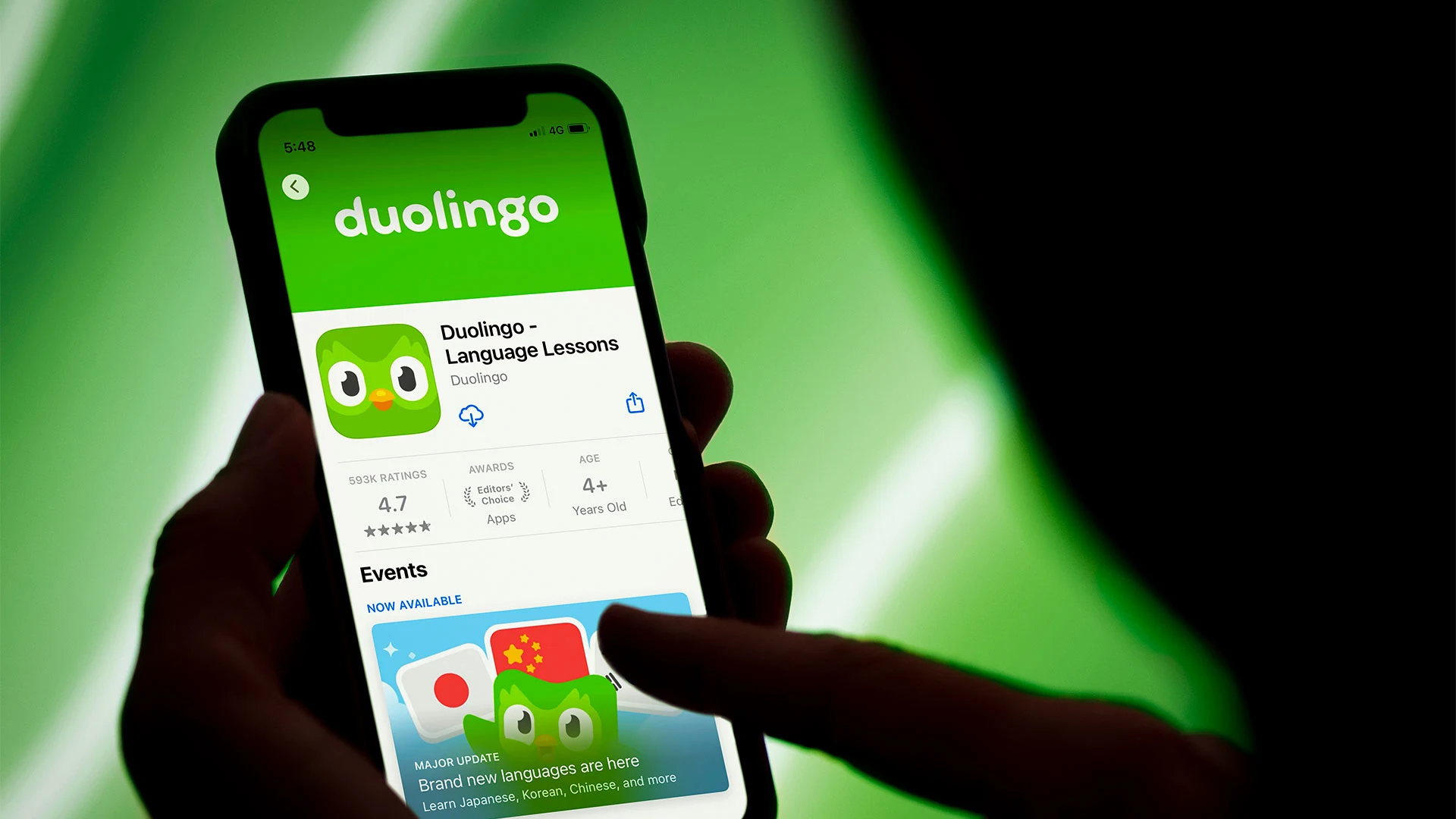Copyright Fast Company

Shares in language learning platform Duolingo, Inc. (Nasdaq: DUOL) are plummeting this morning. As of this writing, the stock is down a staggering 24% in premarket trading. That cliff edge comes after the company reported strong Q3 numbers yesterday. So what’s the reason for today’s fall? Here’s what you need to know. Duolingo reports a strong Q3 2025 By nearly every metric, Duolingo had a strong third quarter, which ended on September 30, 2025. Here are the key metrics the company reported for its Q3: Daily Active Users: 50.5 million (up 36% year over year) Monthly Active Users: 135.3 million (up 20% YOY) Paid Subscribers: 11.5 million (up 34% YOY) Revenue: $271.7 million (up 41% YOY) Adjusted earnings per share (EPS): $5.95 Total Bookings: $281.9 million (up 33% YOY) As you can see, Duolingo’s results are nothing to sneeze at. There are plenty of companies today that would love to report 36% daily active user growth or an increase in revenue of 41%. Yet still, DUOL stock is in free fall this morning. Subscribe to the Daily newsletter.Fast Company's trending stories delivered to you every day Privacy Policy | Fast Company Newsletters The reason for this is one of the key metrics that Duolingo reports: total bookings. Duolingo’s total bookings forecast disappoints The Duolingo metric that investors pay heavy attention to is what the company calls “total bookings.” Total bookings is the catch-all term that Duolingo uses to encapsulate all of its revenue streams. It includes not just current revenues, but future revenues that the company has commitments for. This mainly includes subscription revenue. A customer may sign up for an annual subscription, but may only be billed for it in increments, which means Duolingo doesn’t have that revenue in its bank account yet, but it’s coming in the future. “We believe bookings provide an indication of trends in our operating results, including cash flows, that are not necessarily reflected in our revenues because we recognize subscription revenues ratably over the lifetime of a subscription, the majority of which are twelve months in duration,” the company notes in its Q3 shareholder letter. “Total bookings include subscription bookings, income from advertising networks for advertisements served to our users, purchases of the Duolingo English Test, and in-app purchases of virtual goods,” the company says. Because of the importance of the “total bookings” metric, investors like to hear Duolingo forecast acceptable total bookings growth quarter after quarter. And for the past five quarters, the total bookings growth has ranged between 33% (in Q3 2025) and 42% (in Q4 2024). But for Q4 2025, which ends on December 31, Duolingo says it expects total bookings growth to be only 21.3% to 23.5% (about $329.5 million to $335.5 million). That is well below what Wall Street had expected, as Reuters reports. So what is the reason for the slowdown in total bookings? advertisement In Duolingo’s Q3 shareholder letter, CEO Luis von Ahn said the company was pivoting to improve the platform’s teaching quality and grow its user base. This will come at an expense to monetization, which will affect that all-important total bookings metric. “In particular, we’re investing proportionally more in teaching better, and we’re prioritizing user growth over monetization in the A/B tests that get launched,” von Ahn said, adding, “We’re doing this now because we want to keep growing users for a long time, and because of our increasing conviction that AI can fundamentally change what’s possible in how we teach.” This decision reflects one of Duolingo’s operating principles, which the company calls “take the long view.” It believes that by improving the quality of its product and acquiring more users, those moves will help bring in the things investors care most about: increased revenue from increased total bookings. Duolingo’s 2025 stock slide Whether or not Duolingo’s “long view” pays off remains to be seen. But the company’s 25% premarket price drop this morning shows investors aren’t too happy with what’s been happening. This morning’s price drop compounds an already bad year for Duolingo as far as its share price is concerned. As of yesterday’s close, before today’s 25% plummet, DUOL shares were already trading down nearly 20% for the year. The company’s share price started at around $325 before rising to an all-time high of over $544 in May. But since then, shares have fallen steadily, particularly after the company faced a brand crisis after announcing an AI-first strategy that shifted the content creation from humans to artificial intelligence. As of the time of this writing in premarket trading, DUOL shares are currently trading below $200 apiece—a price not seen since August 2024.



